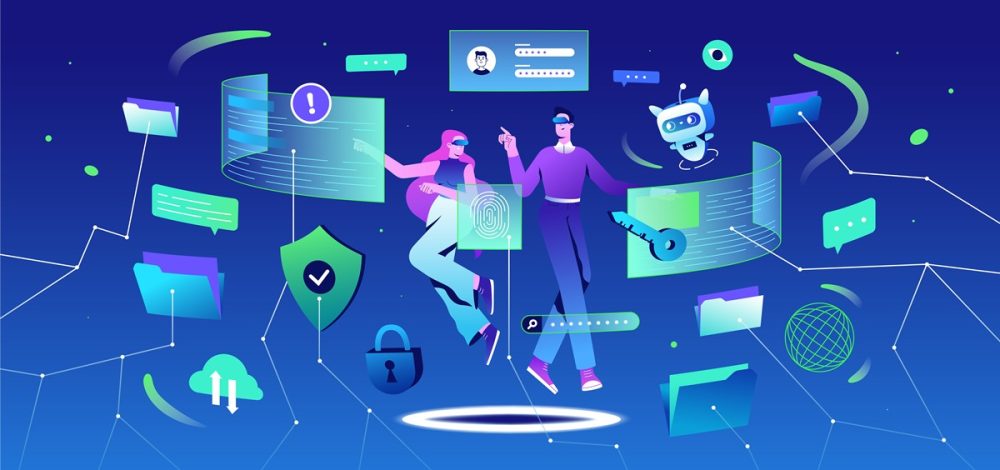
Cybersecurity has become a national priority as India rapidly progresses into the digital era. October, marked globally as National Cyber Security Awareness Month (NCSAM), offers an ideal platform to reflect on the increasing need for robust cyber defences. Cybersecurity is highly critical in India, where rapid digitization touches almost every sector of society, be it banking (UPI payment, internet banking, etc.), governance (authorized use of Aadhar data, income tax filing, etc.), healthcare (online medical insurance, sensitive patient information, etc.), or education (online exams, etc.). Protecting digital infrastructure from rising threats safeguards personal and organizational data and preserves national security.
India is estimated to have over 700 million Internet users, thanks to the spread of the Internet to almost every corner of the country. With government initiatives such as Digital, the use of technology has been boosted across various sectors. However, this greater connectivity comes with substantially more significant risks. Records show that India is one of the prime targets for cyberattacks since the rise in online activities has exposed vulnerabilities in systems and practices. According to a report, over 13 lakh incidents related to cybersecurity were reported in India in the year 2022, ranging from phishing scams and ransomware attacks to sophisticated data breaches. Unfortunately, these numbers have been increasing over the years. These attacks target individuals, businesses and government agencies alike and underscore the urgent need for strengthened cyber defenses.
Recognising the importance of cybersecurity threats, the Indian government has introduced several measures to enhance cybersecurity, such as the National Cyber Security Policy, the National Cyber Crime Reporting Portal, the Indian Cyber Crime Coordination Centre and the Data Protection Bill. Nevertheless, legislative measures alone are not enough. The cyber threat landscape continues to evolve, especially with the rise of emerging technologies like artificial intelligence (AI), Machine Learning (ML) and the Internet of Things (IoT). Although these innovations bring new opportunities, they also bring new risks.
Private sector companies, especially those operating digitally, are crucial in securing India’s cyberspace. Startups, e-commerce platforms, and financial institutions face constant threats as cybercriminals aim to exploit vulnerabilities for monetary gain. Small businesses are often underprepared to deal with these attacks, lacking the resources for robust cybersecurity measures. Industries must adopt comprehensive cybersecurity frameworks, including encryption technologies, regular audits, and incident response plans. The Reserve Bank of India (RBI) has already put in place stringent cybersecurity guidelines for financial institutions. Other sectors must follow suit, ensuring that data integrity and business continuity remain secure from threats.
Employee training is another vital component of cybersecurity. Cyberattacks often exploit human error, whether through phishing emails or unsecured devices. Organizations need to regularly educate their staff to recognize and mitigate risks before they escalate.
Securing India’s cyberspace isn’t solely the responsibility of institutions. Individuals, too, must actively participate to protect their digital lives. Poor cybersecurity practices, such as weak passwords, outdated versions of software/apps, and careless sharing of personal data, create opportunities for cybercriminals.
Cyber literacy is essential for all citizens at all levels, especially as the country envisions bridging the digital divide. Phishing scams, social engineering, and identity theft remain common threats. By raising awareness about safe online practices, citizens can defend themselves against these attacks. Simple steps like enabling two-factor authentication, updating devices regularly, and being cautious with unsolicited communications can significantly reduce the risk of falling victim to cybercrime.
Schools and universities also must play a crucial role. Incorporating cybersecurity into the education system can ensure that the next generation is equipped with the knowledge to navigate the digital world safely. Additionally, encouraging careers in cybersecurity will help build a skilled workforce capable of protecting the nation’s digital future.
National Cyber Security Awareness Month offers a timely reminder: securing cyberspace is a shared responsibility. The government must continue to enhance regulatory frameworks, industries must invest in security infrastructure, and individuals must adopt safer online behaviours. As India envisions to become a global leader in the digital economy, cybersecurity must remain at the forefront of policy discussions. Securing cyberspace is not merely a technical challenge; it’s a national imperative. By building awareness, fostering public-private partnerships, and continuously upgrading our defenses, India can create a secure digital ecosystem.
This National Cyber Security Awareness Month, let’s pledge to make India’s digital space safer for all.
Article by Prof. Ashish Choudhury
Department of Computer Science and Engineering
IIIT-Bangalore


